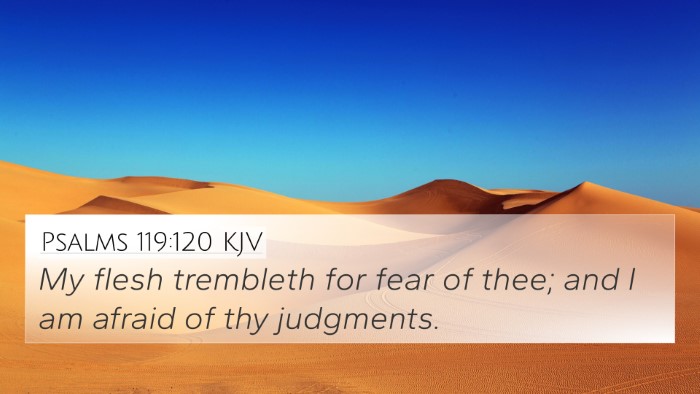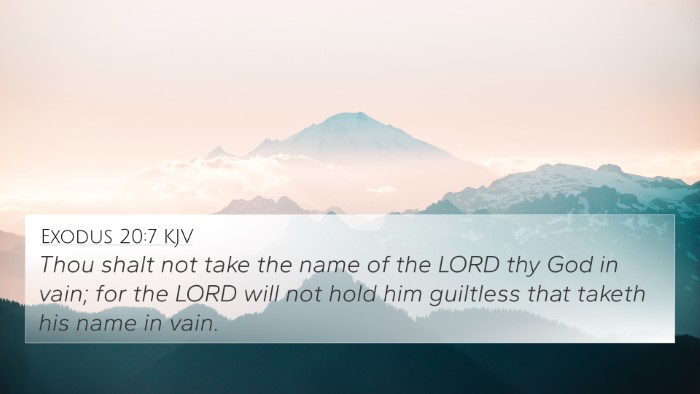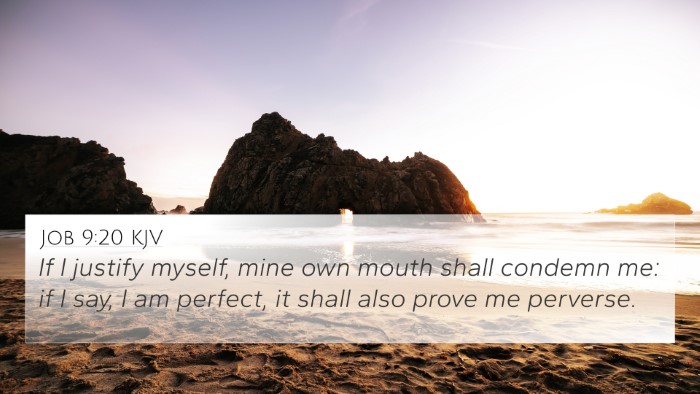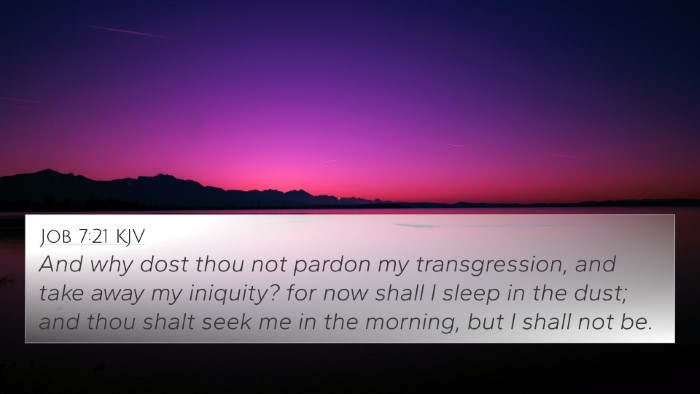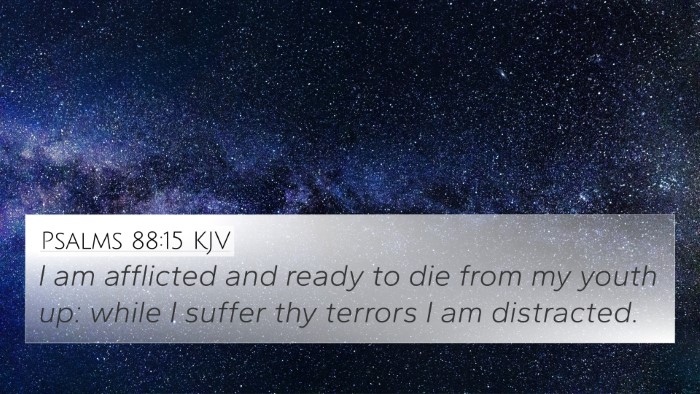Understanding Job 9:28
Job 9:28 states: "I am afraid of all my sufferings; I know that you will not hold me innocent." This verse encapsulates Job's deep awareness of his plight and the subsequent fear of God's judgment. Within this reflection, several insights emerge from the commentaries by Matthew Henry, Albert Barnes, and Adam Clarke, providing a comprehensive understanding of its meaning.
Summary of Insights
Job’s statement reveals his inner turmoil and fear in relation to his suffering, highlighting the existential struggle faced by many believers. The juxtaposition of fear and hope signifies a complex relationship with the divine, where Job acknowledges his sins but simultaneously yearns for mercy.
Key Themes:
- The Nature of Suffering: Job's reflections on suffering prompt questions about divine justice.
- Fear of God: The fear of judgment is a common theme in Job's dialogue with friends and God.
- Awareness of Sin: Job recognizes his imperfections, cultivating an attitude of humility before God.
- The Hope for Innocence: Despite his fears, Job expresses a longing for vindication.
Cross-References of Job 9:28
To further explore the connections between Bible verses, the following cross-references relate to the themes of Job 9:28:
- Job 13:23-24: Job asks God to show him his sin and transgression, reflecting on his desire for understanding.
- Psalm 38:18: The psalmist expresses an acknowledgment of personal sin and the burden of guilt.
- Romans 3:23: "For all have sinned and fall short of the glory of God," emphasizing the universal nature of sin.
- Isaiah 6:5: Isaiah's response to God's holiness mirrors Job's fear of being unclean before a holy God.
- James 4:10: "Humble yourselves before the Lord, and he will exalt you," which aligns with Job's humility.
- Proverbs 9:10: The fear of the Lord is the beginning of wisdom, substantiating Job’s fearful awareness.
- 1 John 1:9: A promise of forgiveness when confession is made, offering hope amid Job’s despair.
Thematic Connections
Job 9:28 can be further understood through its thematic connections across various scriptures:
- The nature of suffering: Explored in texts such as 2 Corinthians 4:17, which speaks of light momentary affliction versus eternal glory.
- Divine justice and mercy: Referenced in Micah 6:8, illustrating God's expectations of humanity in light of His justice.
- The fear of God: Seen throughout both the Old and New Testaments, linking Job's thoughts to Hebrews 10:31.
- Hope for vindication: Reflected in Psalm 43:1, where the psalmist seeks justice from God.
- Awareness of sin: The theme is echoed in Luke 18:13-14, highlighting a humble approach to God.
Tools for Bible Cross-Referencing
Engaging deeply with the scripture requires an understanding of cross-references. Here are some effective tools and methods:
- Bible concordance: A crucial tool for locating specific verses and their related scriptures.
- Cross-reference guide: Offers structured paths to follow thematic links between verses.
- How to use Bible cross-references: Emphasizes the search for interrelated scriptures to enhance understanding.
- Comprehensive Bible cross-reference materials: Provide an expansive view of connections across the Bible.
- Bible chain references: Allows the study of concepts that link multiple verses together.
Conclusion
Job 9:28 serves as a poignant reflection of human suffering and the quest for divine understanding. Through careful analysis and cross-referencing with other biblical texts, we can enrich our comprehension of the themes of fear, sin, and the hope for eventual vindication.



